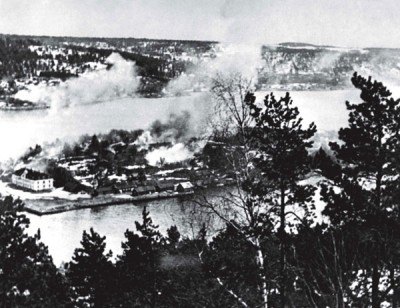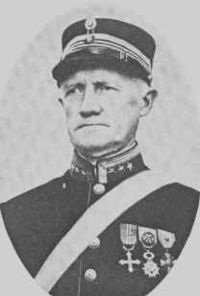Friday marked 70 years since Norway was invaded by Germany, setting off an occupation unlikely to be forgotten. The bitter wars years began in many ways off Oscarsborg, an island in the fjord south of Oslo, where officials gathered Friday morning to remember, and discuss defense.

The president of Norway’s Parliament, Dag Terje Andersen, planned to lay down a wreath, while defense officials, historians and journalists met for a seminar on current national defense and NATO’s perspective on the northern areas.
Several Norwegians who lived through the drama of April 9, 1940 were interviewed throughout the morning on national radio, recalling where they were, how their families responded and how their lives changed forever on that day.
As newspaper Aftenposten wrote in memorial coverage of the invasion on Friday, Norway was woefully unprepared for the attack by the forces of Adolf Hitler. Norway had been neutral during World War I but reports of its horrors gave rise to widespread pacifism in Norway that extended through the 1930s. By the time Hitler’s aggression was finally recognized, it was too late to build up a military defense.
Norway, noted Aftenposten, had been living under three illusions: That its neutrality would be respected, that the powerful British Navy would defend Norwegian waters and that Hitler’s Germany wasn’t really interested in conquering Norway.

None of that was true. Both the Germans and the British were racing to gain control over Norway’s strategic if unwieldy coastline. Early on the morning of April 9, 1940, Germany won the race but it did suffer a severe blow when the commander of the fortress on an island off Drøbak, Colonel Birger Eriksen, ordered the firing of torpedoes on the German cruiser Blücher, which was full of German troops heading for Oslo.
Eriksen’s order is widely credited with allowing Norway’s king and crown prince to escape and set up a government in exile in London. Norway never officially surrendered to Hitler, and an active resistance movement continued to plague the German occupiers throughout the war.
Norway’s state archives were releasing on Friday more than 5,000 documents from the war years that previously were held confidential and not available online. Aftenposten reports that the documents can shed new light on the puppet government set up by Nazi sympathizer and Norwegian traitor Vidkun Quisling, including his plans for colonizing parts of the former Soviet Union. The documents are available from state archives Riksarkivet, at www.arkivverket.no (external site, Norwegian only).
Today Oscarsborg is a historic monument, refurbished by both public and private interests and used both to promote public understanding of its military role in World War II and earlier, as well as a site for recreation and cultural events. A hotel and spa opened on the island a few years ago, and outdoor opera performances are held every summer, in addition to a variety of other events.
Views and News from Norway/Nina Berglund
Join our Forum if you’d like to comment on this story.

